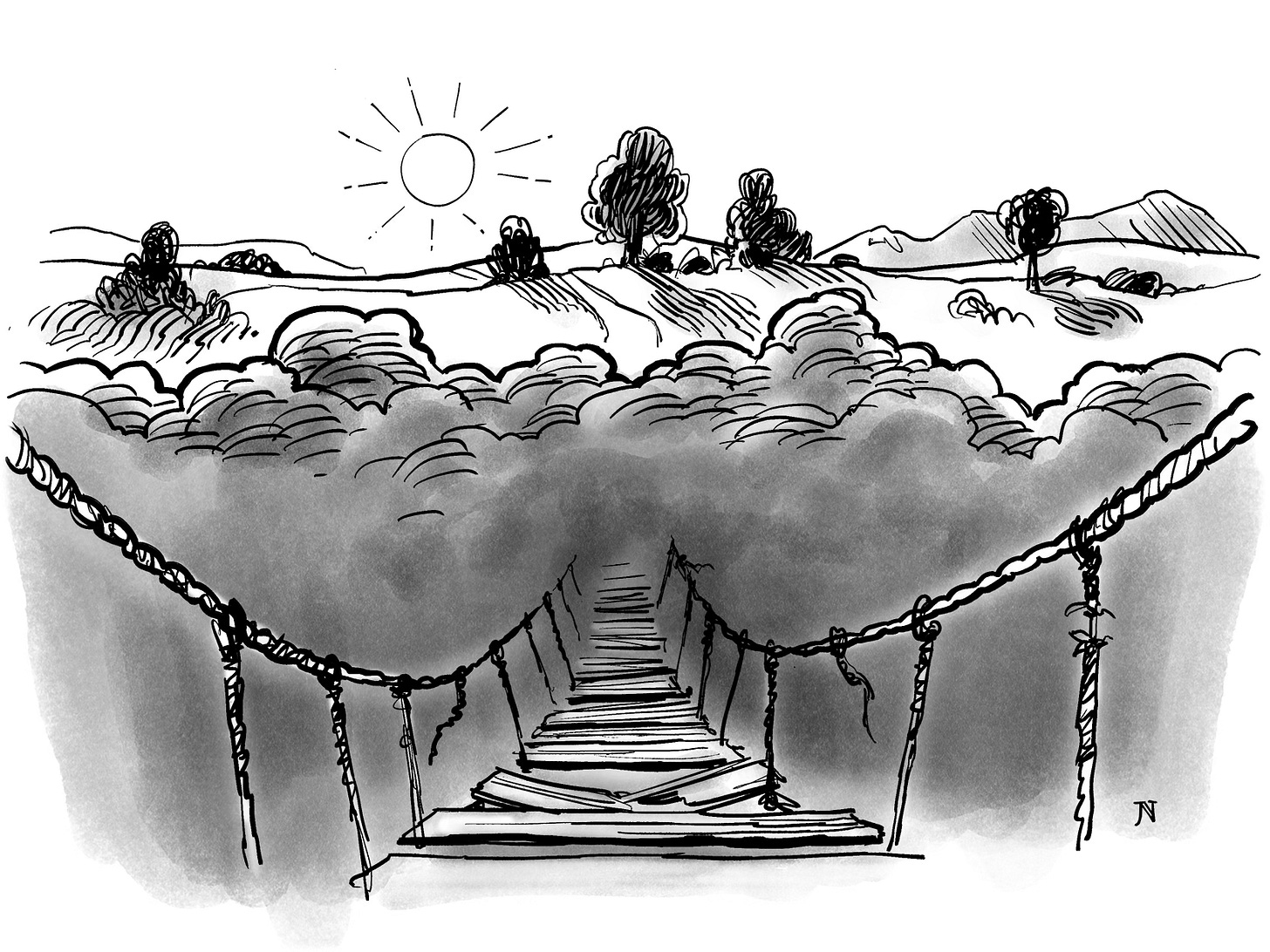Broad Framing is Technique
Grand strategic vision is the output
So, I’m on my way to Syracuse to give a lecture and master class to mid-career types in the Maxwell School’s (public policy) exec-ed program. In the latter, I’m going to do a query-based exploration of what it means/takes to become a grand strategist, or somebody who thinks in terms of grand strategy.
It will be based on something I wrote a long time ago and shared here not all that long ago.
How to become a grand strategist
About 15 years ago, I originally wrote this for one of my books but did not keep it.
Most of what gets described as grand strategy today is about war termination (legacy of WWII experience; see above) or concerns a superpower-on-superpower competition. I consider both to be too narrow.
To me, grand strategy is long term (decades) in vision and broad in ambition (the world you wish to bring into being). Naturally, that sort of definition applies only to a superpower, so there’s the obvious instinct to make it my preferred world versus their’s. While I am always willing to mention the other guy (mostly China nowadays), I don’t believe in starting the analysis there. That’s just a motivator.
Instead, you gotta want what you wanna get, and define that on your own. It has to be true to your character and being, and not just an opposing calculation, because that leaves you being just not them and what’s the point in making all that effort for just that?
Here’s what I had to say about grand strategy in my 2009 Great Powers:
To be plausible, grand strategic vision must combine a clear-eyed view of today’s reality with a broad capture of the dominant trends shaping the long-term environment, meaning no sharp detours — much less U-turns — in history’s advance.
Grand strategy does not seek to change human nature (which got us to this point quite nicely) but to placate it, thereby ensuring the portability of its strategic concepts (the dos and don’ts) among minds from different backgrounds, culture, and ages.
Grand strategic thinking always keeps the U.S. government’s role in proper perspective, because globalization comes with rules but not a ruler.
Grand strategic analysis starts with security, which is always 100 percent of your problem until it’s reasonably achieved, because then it’s at most 10 percent of your ultimate solution.
Grand strategy is not clairvoyance; it does not seek to predict future events, but rather to contextualize them in a confident, opportunistic worldview.
Because we live in a time of pervasive and persistent revolutions, the grand strategist is neither surprised nor dismayed when the awesome force of globalization’s tectonic shifts elicits vociferous or even violent friction from locals.
Grand strategy purposefully aspires to be proactive, not merely protecting itself from failure but also exploiting avenues of success as they are revealed.
So grand strategists do not entertain, much less succumb to, single-point-failure doomsaying, because systematic thinking about the future means you’re not “for” or “against” issues like peak oil or global warming or resource scarcity but instead accept the implied dynamics of the change that has been triggered and factor them in accordingly.
The grand strategist is therefore interested more in direction than in degree of change, recognizing that politics lags dramatically behind economics and that security lags dramatically behind connectivity.
Grand strategy isn’t about keeping it a “fair fight”; the grand strategist desires as many allies as possible and as few enemies as possible, and so he’s interested in everything and anything that brings adherents to his cause while sapping his enemy’s numbers.
In effect, the question never really changes: What kind of world do you (America) want and what will you do to achieve it?
That’s my entire career in two questions (I naturally think in terms of X-Ys).
I’m not much on preserving, which makes me a poor conservative (even as I tend to work more for them than liberals). Instead, I’m big on building, because building involves you, wins your heart and mind, earns your commitment, and motivates in ways far beyond just keeping things as they are.
I believe that America and Americans need grand strategic vision now more than at any time previously. We face huge structural changes in the world order, most of them being by our design as we spread our internal Union ruleset (virtually free movement of goods, services, money, ideas, technologies, people) to the world (a global state of being now described as globalization).
We changed EVERYTHING by doing this, including our very planet.
The evolution requirement forced back upon us by what we set in motion is PROFOUND, redefining economics, politics, technology, environment, society … again, EVERYTHING.
We are now forced into a co-evolution with the rest of the world — and Nature. That is complex and trying for a superpower used to having its way around the world.
There are some who want to sit this one out: pull back, hunker down, and stay whatever American meant before things sped up so fast (or, more pointedly, before America’s ongoing racial makeover reached its present speed).
To me, that is surrender. It’s also dishonest (What? I didn’t set this all in motion! That wasn’t me!).
But worst of all, it is disincentivizing to future generations: Why bother? We’re screwed!
I refuse to think that that is what I am leaving behind. My kids deserve better.
And so I try harder.





Right now our society and economy isn't family friendly. Women in leadership will alleviate that, but the decline in fertility is a function of modernity and it won't go away. Meanwhile, life extension goes nuts.
Women live longer and are taking over medicine and lawyering, two huge feeders of political leadership. I see a feminization of world leadership and I think it will be a very positive long term development.